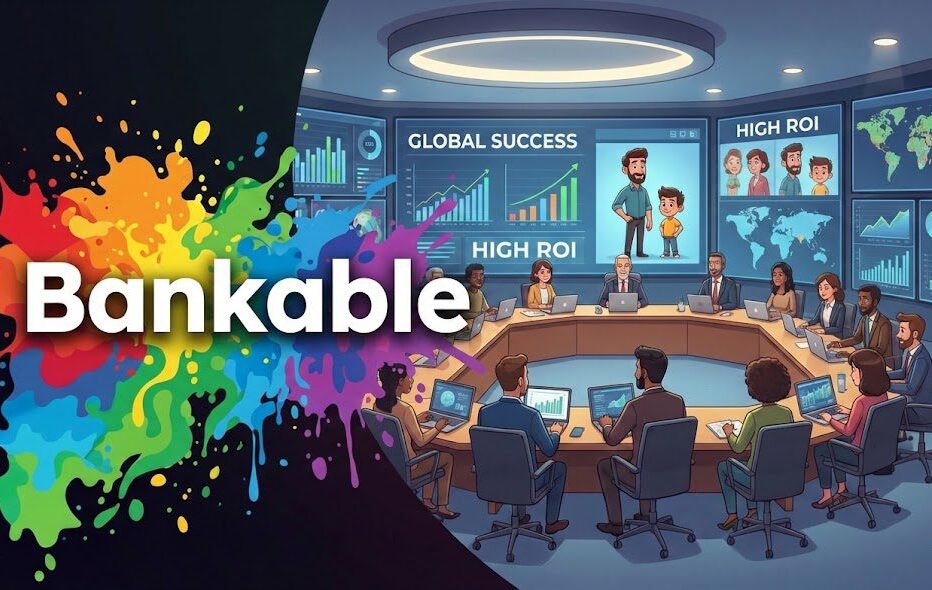In today’s globalized entertainment landscape, international content acquisition has become the lifeblood of media companies seeking to captivate audiences worldwide. As streaming platforms proliferate and viewers demand diverse content, the ability to source and secure compelling international productions is more crucial than ever. But how can entertainment professionals navigate this complex, fast-paced market effectively?
Enter Vitrina, the game-changing B2B marketplace designed to revolutionize international content acquisition and industry connections. Whether you’re a content buyer, seller, distributor, or producer, Vitrina offers the tools and network you need to thrive in the global entertainment ecosystem.
The hunger for diverse, high-quality content has never been stronger. Streaming giants and traditional broadcasters alike are scouring the globe for the next big hit, recognizing that compelling stories transcend borders. This surge in international content acquisition is reshaping the entertainment landscape, offering both exciting opportunities and formidable challenges for industry professionals.
Consider the runaway success of South Korean dramas or the global appeal of Nordic noir. These examples highlight the immense potential of international content to captivate audiences far beyond their countries of origin. However, identifying, evaluating, and acquiring such content requires expertise, connections, and efficient processes – areas where many professionals struggle.

One of the most daunting aspects of international content acquisition is navigating the intricacies of cross-border licensing agreements. Each territory comes with its own legal framework, cultural nuances, and market dynamics. Successful acquisition professionals must be adept at understanding and negotiating these complex deals.
For instance, a US-based streaming platform looking to acquire a popular Spanish series must consider not only the initial licensing fees but also dubbing or subtitling costs, potential cultural adaptations, and the series’ performance in similar markets. This multifaceted approach to international content acquisition demands both broad market knowledge and deep, territory-specific insights.
Unlock Global Licensing Expertise
Master Cross-Border Content Deals
Get expert insights on international licensing trends and best practices.
Successful international content acquisition isn’t just about securing individual hits; it’s about curating a diverse, appealing content portfolio that can attract and retain a broad audience base. This requires a strategic approach to global sourcing, balancing risk and potential across various genres, formats, and territories.
Consider how Netflix has built its international reputation. By acquiring and producing content from countries like Brazil, Germany, and India, they’ve not only attracted local audiences but also introduced these shows to a global viewership. This strategy of diverse international content acquisition has helped them maintain a competitive edge in a crowded market.
In the digital age, technology plays a crucial role in streamlining the international content acquisition process. Advanced analytics tools can help predict content performance across different markets, while AI-powered recommendation engines can surface promising titles that might otherwise be overlooked.
Platforms like Vitrina are at the forefront of this technological revolution, offering powerful search and discovery tools tailored specifically for entertainment industry professionals. By leveraging these innovations, content buyers can make more informed decisions and identify promising opportunities more efficiently.
Supercharge Your Content Discovery
Find Your Next Global Hit
Use Vitrina’s advanced search tools to uncover hidden gems in international content.
Despite technological advancements, international content acquisition remains a people-driven business. Building strong relationships with producers, distributors, and other industry professionals across the globe is essential for success. These connections can provide early access to promising content, insider market intelligence, and smoother negotiations.
Attending international markets and festivals like MIPCOM or the Berlinale European Film Market has traditionally been key to forging these relationships. However, the landscape is evolving, with digital platforms now offering year-round networking opportunities that complement these in-person events.
Successful international content acquisition requires a nuanced understanding of regional content trends and audience preferences. What works in one market may not resonate in another, and being attuned to these differences is crucial for making smart acquisition decisions.
For example, while high-concept sci-fi series might perform well in some Western markets, family dramas or historical epics might be more popular in certain Asian territories. Professionals engaged in international content acquisition must stay informed about these regional variations and how they evolve over time.
Stay Ahead of Global Trends
Master Regional Content Preferences
Access up-to-date market reports and trend analyses from industry experts.
International content acquisition is a complex but rewarding field that’s crucial to success in today’s global entertainment industry. By understanding market trends, building strong relationships, leveraging technology, and partnering with platforms like Vitrina, professionals can navigate this landscape more effectively. Whether you’re looking to diversify your content portfolio, expand into new markets, or discover the next global hit, mastering the art of international content acquisition is key to staying competitive in the ever-evolving world of entertainment.
The main challenges include navigating different legal frameworks, understanding diverse cultural preferences, overcoming language barriers, and staying updated on global market trends.
Streaming has increased demand for diverse content, accelerated the pace of acquisitions, and opened up new markets for content that might have previously been considered too niche or foreign.
Key skills include market analysis, negotiation, cultural sensitivity, relationship building, and the ability to spot emerging trends and potential hits.
Smaller companies can leverage technology platforms like Vitrina to access market insights, build networks, and discover unique content that larger players might overlook.































